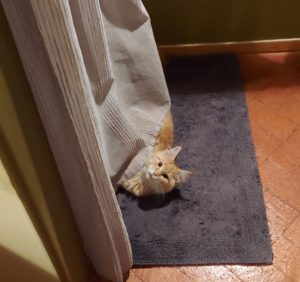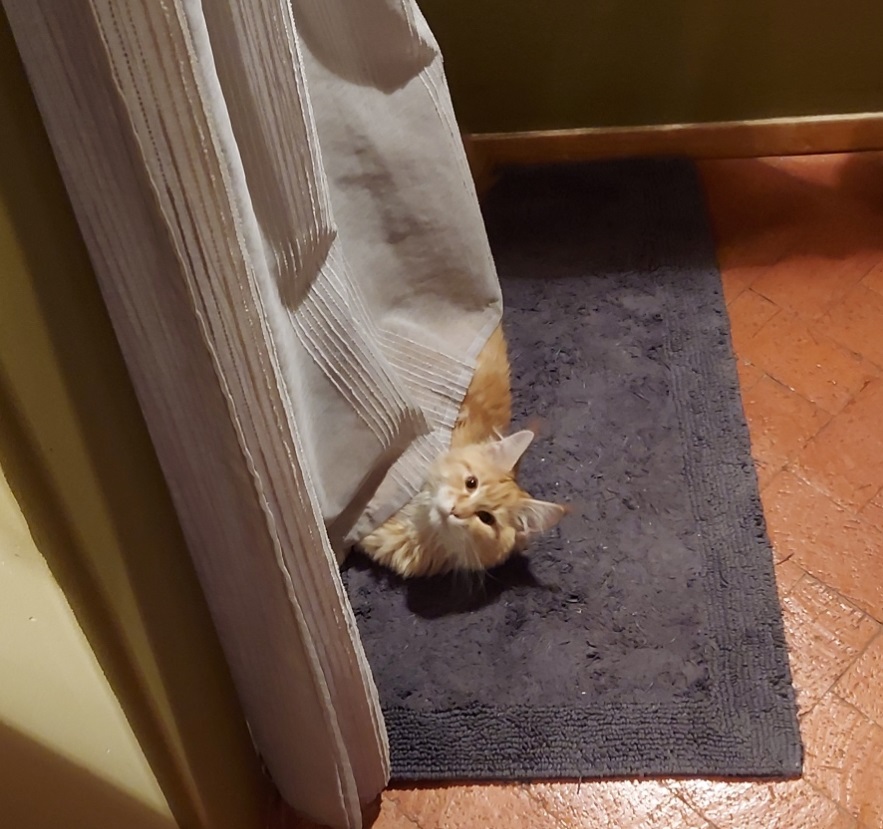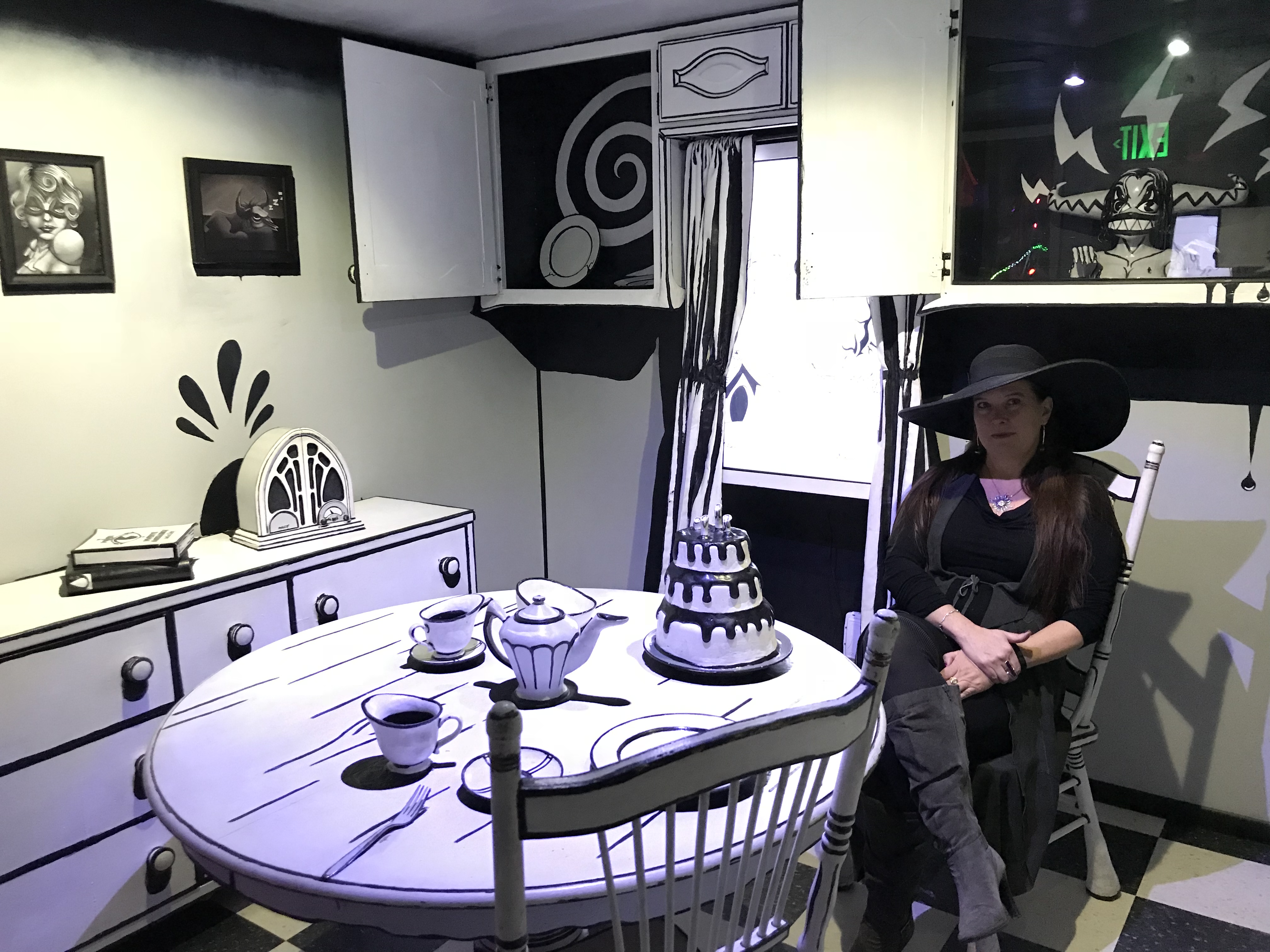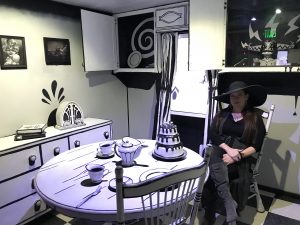Superpowers, immortality, and whether we’d keep everyone alive forever if we could. Also the movie She Said, reflections on the naughty Tumblr I used to have and how the #metoo movement changed so many things for me.

RITA ® Award-Winning Author of Fantasy Romance

Superpowers, immortality, and whether we’d keep everyone alive forever if we could. Also the movie She Said, reflections on the naughty Tumblr I used to have and how the #metoo movement changed so many things for me.



Another photo from Meow Wolf. Nnedi Okorafor and I fell in love with this crazy kitchen and had to photograph each other in it. One of the most fun aspects of this “immersive experience” is not only being able to touch and enter the exhibit, but in a way to become part of it as well. I felt like part of this kitchen and wanted to seem like it, too.
Art of all mediums is interesting in the way it interfaces with reality. It’s impossible to recreate reality in art – and maybe not even desirable to do so – but art necessarily reflects and at best deepens our understanding of the real world. Our topic at the SFF Seven this week is the unreliable narrator – whether we love them, hate them, write them or avoid them. Come on over to weigh in!

 Saw this doglike creature at Meow Wolf. I loved how the matte metal body faded into the shadows while its quizzical bright face popped, ears perked. You could press the eyes, too, and make them bobble. One of the great things about Meow Wolf is you can touch everything. I wandered through the place in the excellent company of Nnedi Okorafor and she’s like me – she commented, “It’s not real for me unless I can touch it.” So very true.
Saw this doglike creature at Meow Wolf. I loved how the matte metal body faded into the shadows while its quizzical bright face popped, ears perked. You could press the eyes, too, and make them bobble. One of the great things about Meow Wolf is you can touch everything. I wandered through the place in the excellent company of Nnedi Okorafor and she’s like me – she commented, “It’s not real for me unless I can touch it.” So very true.
I’ve been thinking lately about how I rate the books I read. You know – three stars, five stars, whatever. Everyone has their own set of criteria. Although, I do hear a lot of conversations where people discuss how they assign ratings and wanting to validate their systems in comparisons to others. Some people say it’s like the US Grading system of A, B, C, D and F, with five stars equivalent to an A. Very often these same folks say that three stars is a good rating, even though they agree it’s equivalent to a C.
Probably this goes back to what kind of students we were in school, but I was the overachieving kind who got upset at anything lower than an A.
Still, in school a grade serves to indicate a student’s understanding of the subject taught (or should), while a book rating should convey how much we enjoyed it. Or, it might be intended as a valuation. How “good” is the book?
A lot of things play into this second way of looking at rating a book. How we want other people to view us plays in. We want to be viewed as being discerning, as having the intelligence and taste to know “good” stories from “bad.” I put those valuations in quotation marks because I think a lot of people call something good or bad when what they mean is that they do or don’t like it.
Not the same thing at all.
BUT, calling something we don’t like “bad” gives us a bit more intellectual authority, at least on the outside.
Recently I saw a screed by a Big Name Author (BNA) who said they get in trouble for giving books they liked ratings of 2.5. They went on at some length, justifying how 2.5 was a great rating when they don’t finish (DNF) 90% of the books they read. What went unsaid was the implication that there should be plenty of room to somehow “crown” the truly beloved books with a 5.0.
I also saw a rando Goodreads reviewer give a book a 3.81 rating – which was in the review itself, as Goodreads doesn’t allow for tenths of points, much less hundredths. I didn’t look beyond that, partly because I rolled my eyes so hard I strained an oculomotor muscle and couldn’t focus quite right for a few minutes.
I mean, really?
This is attempting to create an impression of precision where there is none. We are not judges at the Olympics adding or subtracting points for technicalities and difficulty. It’s a story. There are no finite scorable elements like touching a second foot down following a triple axle. Reading is a subjective experience.
So, while I understand the impulse to “reserve” the best scores for the most beloved books, I wonder at what that really accomplishes. And I say that as someone who used to worry about my reputation if I rated a book too highly and other people began to question my motivations or integrity.
I don’t worry about that any more.
After all, I judge for a number of contests and I have plenty of opportunity to apply scoring to decide which books I think deserve the highest accolades. But for general reading? I’ve come to the point where there’s room for an infinite number of five-star books in my world. Five-stars means I loved reading it. What happens if I find a book I loved reading more? Also five stars. I’m not sure everything in life needs to be relentlessly ranked in comparison to everything else.
I’ve also stopped rating and reviewing every damn thing I buy because I’m tired of spending my time in service to retailers, but that’s another rant for another time.
Basically it comes down to that I love books. I love to read. If I love a story, I don’t feel the need to judge it down to tenths and hundredths of points. I’m not assigning a grade to provide incentive to the author to do better.
I’m just saying I enjoyed the hell out of it.


I caught Isabel mid-yawn on this one. What I get for disturbing the cozy winter’s nap with my photo-taking. She – like all cats – is the poster child for this week’s topic, which is balancing writing with physical and emotional health. There’s a catchphrase that writers like to pass around, about maintaining productivity: BICHOK, or Butt-in-Chair, Hands-on-Keyboard. I get that it’s a metaphor, meaning that you get writing done by actually writing, but it’s one I quibble with because I’m so against the sitting-down part. Come on over to find out more.